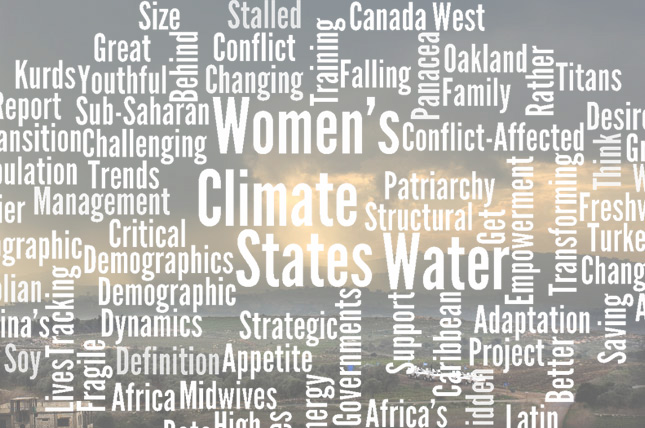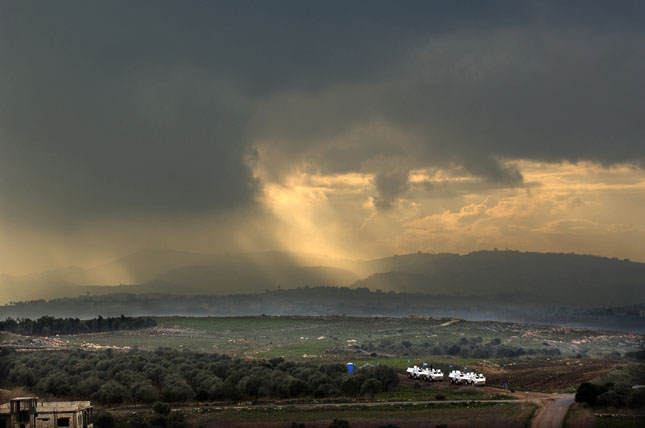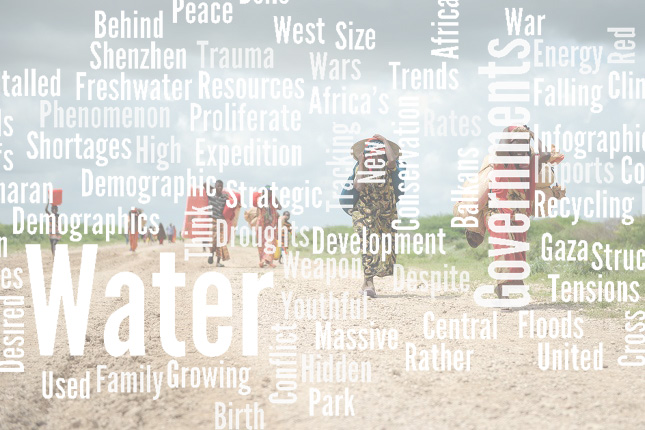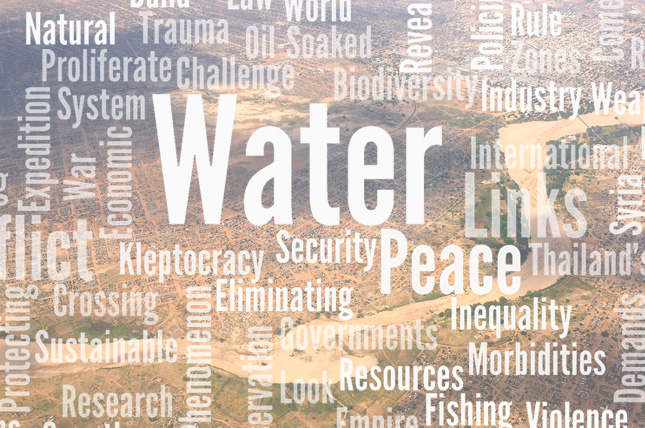-
Top 10 Posts for October 2015
›
When public order collapses, so does the weather forecast, and that has big implications for peacebuilding, according to a recent report on the importance of restoring meteorology systems in fragile and conflict-affected countries.
-
Climate Data Can be Critical in Fragile and Conflict-Affected States – Here’s How to Get It
›October 5, 2015 // By Schuyler Null
When war breaks out, what happens to the weather forecast? Violent conflict disrupts many essential services in developing countries and one of the most overlooked is meteorology, which has surprisingly big consequences for farmers, policymakers, and the aid workers who are there to help.
-
Top 10 Posts for September 2015
›
Water, energy, and demography – these were the themes of the most popular stories from last month. It seems natural resources and their consumption are on people’s minds.
-
China’s Cap-and-Trade System a Crucial Weapon in “War on Pollution,” Says Jennifer Turner
›The announcement in Washington on September 24 that President Xi Jinping is committing China to a national carbon trading system is the latest step in an important partnership between the two biggest carbon emitters in the world.
-
From Gaza to the Euphrates, Alarm Bells for Mideast Water Resources
› The board of the United Nations’ lead organization on trade and development, called UNCTAD, released an assessment of Gaza’s development challenges during their annual meeting in Geneva this month and the news is not good. In 2012, the UN warned that a “herculean” development effort would be to keep pace with Gaza’s rapid population growth. Since then, more fighting with Israel has made things worse, particularly with regard to water and food security. Ninety-five percent of the water from Gaza’s coastal aquifer is unsafe for drinking without treatment, the report says. Contamination and over-extraction may even render it unusable by next year and damage may be irreversible if not addressed in the next five years.
The board of the United Nations’ lead organization on trade and development, called UNCTAD, released an assessment of Gaza’s development challenges during their annual meeting in Geneva this month and the news is not good. In 2012, the UN warned that a “herculean” development effort would be to keep pace with Gaza’s rapid population growth. Since then, more fighting with Israel has made things worse, particularly with regard to water and food security. Ninety-five percent of the water from Gaza’s coastal aquifer is unsafe for drinking without treatment, the report says. Contamination and over-extraction may even render it unusable by next year and damage may be irreversible if not addressed in the next five years. -
Pakistan’s Maternal and Child Health Problems “Huge Stumbling Block” to Development, Long-Term Security
›In the long term, improving maternal and child health is as critical to national security as any problem in Pakistan today, said a panel of experts including Minister of National Health Services Saira Afzal Tarar at the Wilson Center on September 9.
-
Top 10 Posts for August 2015
›
The war in Darfur, which has in turns captivated the world’s attention and been ignored, is still on. In one of last month’s most-read articles, Brendan Bromwich writes that this is in part because of a flawed, simplified narrative about whether the conflict is primarily about politics or natural resources. It’s both, he writes, and without addressing this complexity, the peace process will not be successful.
-
Red Cross: Water Continues to Be Used as Weapon of War in Syria
›Water is being used as a weapon of war on one of Syria’s deadliest battlegrounds, says the International Committee of the Red Cross (ICRC) and its local affiliate, the Syrian Arab Crescent, in a new video.
Showing posts by Schuyler Null.








